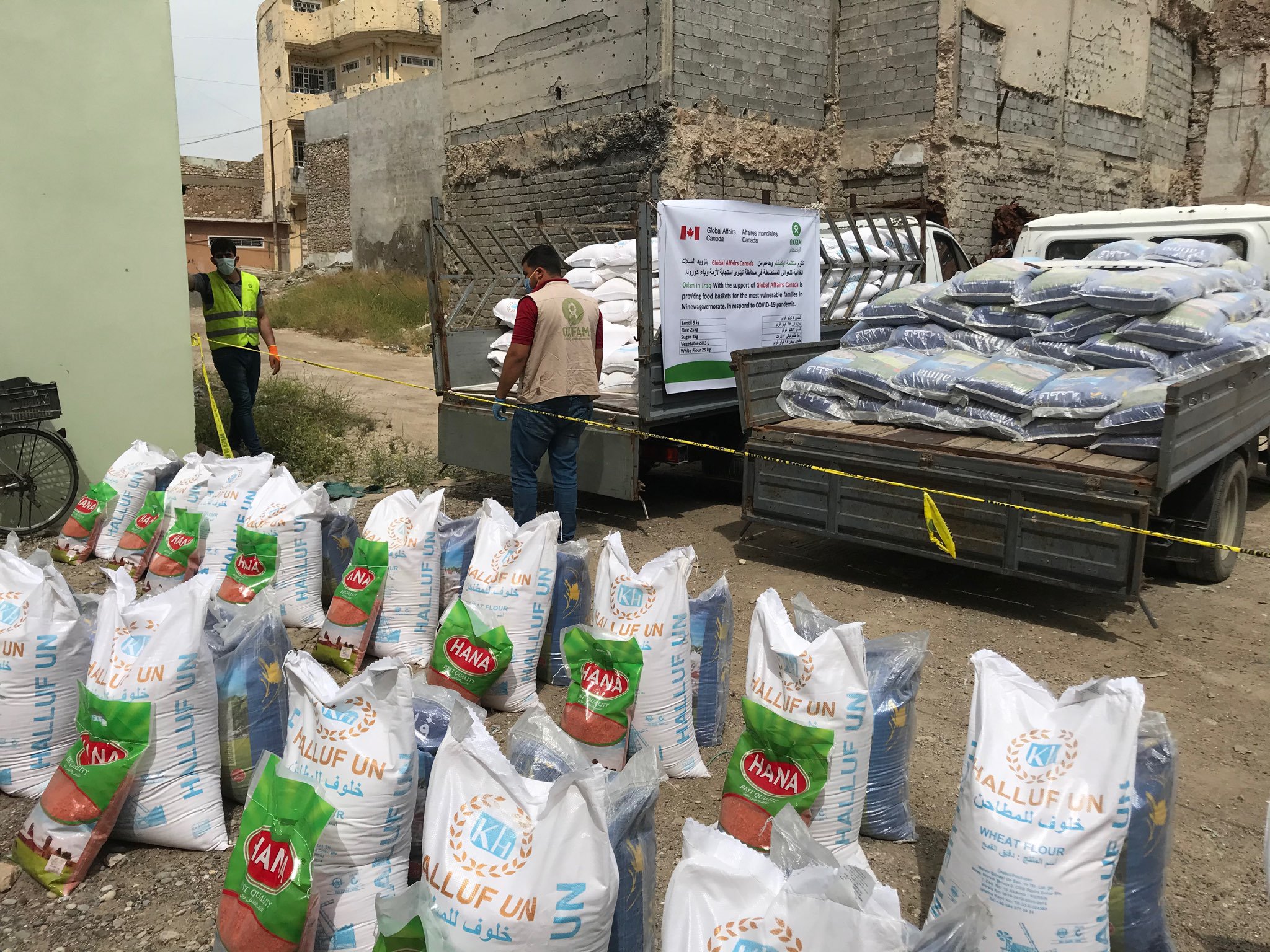In the face of hunger threats brought on by the coronavirus pandemic, Oxfam is helping people now and assessing the medium- and long-term threat to the world’s supply of food.
As COVID-19 marches across the world, the threat of illness and death is meeting an even greater concern as the disease threatens places already suffering from poverty, conflict, and drought. Hunger is now the greater concern in poor countries where people struggle to earn enough to eat each day, or grow the food on which their families and local markets rely.
“At the same time while dealing with a COVID-19 pandemic, we are also on the brink of a hunger pandemic,” David Beasley, head of the World Food Programme, told the UN Security Council last month. The media seized on the news, and headlines proclaimed that the “Coronavirus pandemic will cause global famines of 'biblical proportions.'”
The concerns of widespread hunger are legitimate, says Emily Farr, a US-based expert on food security and livelihoods for Oxfam. She’s particularly concerned about people working in the informal economy.
“Many people in urban areas rely on daily labor in street markets, petty trading, and women who sell prepared food, run a tea shop, [or] work as domestic workers,” she says. As governments order people to stay at home, these informal workers will lose their income and ability to buy food. People in rural areas are also likely to suffer, Farr adds, noting that farm workers who are ordered to stay home and can’t get a daily wage, as well as the farmers who employ them to harvest crops, are also vulnerable.
There are already places with high levels of food insecurity due to pre-existing crises, including South Sudan (due to conflict), and in the Horn of Africa (in areas affected by dry weather, floods, and then an upsurge in desert locusts). The COVID-19 pandemic increases the risk that these areas could get worse.
“We need to monitor the places most at risk and take action to head off famine well before we get to that point,” Farr says. But in all countries facing food supply challenges, Farr says, “we need to support farmers, help them get their produce to functioning markets, and support the demand side so people can buy what farmers can grow.”

Widespread hunger due to the COVID-19 pandemic could push half a billion people into poverty. And there were already about 135 million at “crisis levels of hunger or worse,” according to the UN. In addition, there are several countries like India that did not anticipate a food crisis this year, but are experiencing hunger because people can’t earn money to buy food due to policies designed to limit the spread of the virus.
Oxfam’s response to the pandemic
Oxfam is adapting its work and seeking new funds to respond to the COVID-19 pandemic with clean water and soap, and protection equipment for frontline health workers to reduce the risk of the coronavirus spreading. To help people access food, Oxfam is also raising money to provide cash in places where markets are functioning so people can buy it. In other places where markets are closed or food is not available, Oxfam and our partners are distributing food. Staff are instituting new social distancing and hygiene protocols, including handwashing, masks and gloves for staff, and maintaining distance between people.
- Oxfam in India has distributed dry rations (rice, lentils, and spices) to 11,620 households in Maharashtra and Delhi, and provided 48,000 ready-to-eat meals to migrant workers, homeless people, and others in Kerala, Tamil Nadu, Delhi, Gujarat, and Maharashtra. Oxfam’s goal in India is to reach 50,000 people with hygiene support, protective equipment, and cash.
- In Guatemala, indigenous Maya farmers in the western areas of the “Dry Corridor” are struggling to recover from dry conditions and a poor harvest in 2019. Oxfam and partners distributed food in late April to 670 people near Huehuetenango, including 18 households with children under 5 suffering from acute malnutrition.
- In Iraq, Oxfam recently provided cash to 100 households in lockdown in and around Mosul, and then distributed food to 1,870 families in Mosul.
Click here for more on Oxfam’s global response to the COVID-19 pandemic.
Gathering info
Governments and aid organization are trying to determine who is suffering now and who is likely to face food deficits in the future. “Oxfam staff and our partners are gathering information to understand how people are affected, what they do to get food, and how their work and livelihoods are affected,” Farr says. “This gives us a sense of what is happening and how the problems are evolving, and what the impact will be.”

To understand how the crisis will evolve, Oxfam is collecting information and working with other organizations to analyze how food security is affected in different countries and at global level. One such partnership is the Integrated Food Security Phase Classification, which provides a way for experts to determine the scale and severity of food insecurity within a country.
Pandemic risks
Farr says she and her colleagues are trying to discern the longer-term challenges facing areas at risk of food shortages and malnutrition due to COVID-19. “It is still unclear how food security will evolve over time because of this pandemic,” she says, noting that the priority for governments and aid groups needs to be “providing the right kind of assistance now, because if we wait to act until we declare a famine, it will be too late for too many people.”
